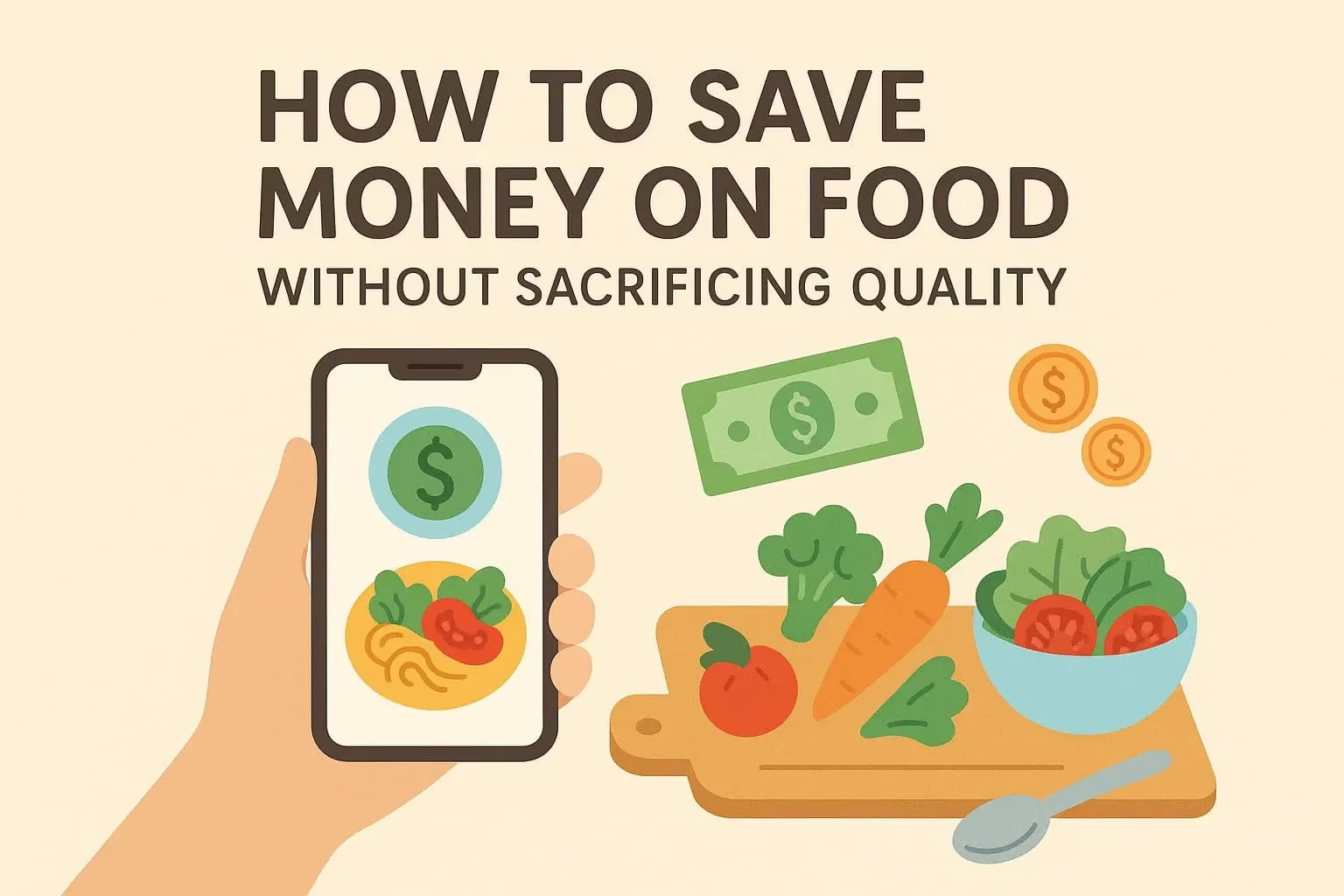We often separate physical and mental health into different categories. But the truth is, what you eat affects how you feel — emotionally, mentally, and energetically. Food isn’t just fuel; it’s information for your brain and nervous system. And when you approach nutrition as a form of extreme self-care, you begin to treat meals not just as tasks, but as acts of nourishment and kindness.
In this article, you’ll discover how to eat in a way that supports both your body and mind, using practical and compassionate strategies rooted in real life — not perfection.
Why Nutrition Affects Mental Health
Your brain is a highly active organ that requires constant energy and nutrient supply. Without proper nourishment, your emotional regulation, clarity, and resilience can all suffer.
Here’s how food influences mental health:
- Blood sugar imbalances can trigger anxiety, mood swings, and fatigue
- Nutrient deficiencies (especially in B vitamins, omega-3s, magnesium, and iron) are linked to depression and brain fog
- Inflammatory foods can disrupt gut health — and since your gut produces most of your serotonin, that matters
- Highly processed foods may spike dopamine temporarily, but lead to crashes and cravings
The connection is undeniable: when your body is nourished, your mind can stabilize and thrive.
1. Prioritize Whole, Nutrient-Dense Foods
No fad diets. No rules. Just a simple shift: focus on foods that are as close to their natural state as possible.
These foods are rich in the vitamins, minerals, and fiber your body and brain need to function well.
Try:
- Leafy greens (spinach, kale, arugula)
- Whole grains (quinoa, oats, brown rice)
- Healthy fats (avocados, olive oil, nuts)
- Legumes (lentils, chickpeas, black beans)
- Berries and colorful fruits
- Lean proteins (eggs, fish, tofu, chicken)
Whole foods provide steady energy and support emotional balance — without the highs and crashes.
2. Balance Your Blood Sugar to Stabilize Mood
One of the fastest ways to improve emotional regulation is to avoid blood sugar spikes and crashes, which can lead to irritability, anxiety, and fatigue.
Tips:
- Never skip meals — especially breakfast
- Include protein, healthy fat, and fiber at every meal
- Choose complex carbs over refined ones
- Avoid high-sugar snacks on an empty stomach
- Add cinnamon, nuts, or chia to carbs to slow absorption
Stable blood sugar = stable mood.
3. Eat Foods That Support Brain Health
Your brain loves certain nutrients — especially those that reduce inflammation and support neurotransmitter production.
Brain-Boosting Nutrients and Where to Find Them:
- Omega-3 fatty acids → fatty fish (salmon, sardines), flaxseeds, walnuts
- Magnesium → leafy greens, dark chocolate, almonds, black beans
- B vitamins → eggs, whole grains, bananas, leafy greens
- Zinc → pumpkin seeds, cashews, chickpeas
- Iron → red meat, lentils, spinach, tofu
- Antioxidants → berries, green tea, turmeric
You don’t need supplements (unless medically advised) — you just need variety and consistency.
4. Don’t Fear Carbs — Choose Smart Ones
Carbohydrates are not the enemy. Your brain relies on glucose to function. The key is to choose slow-digesting, fiber-rich carbs that support energy and focus.
Smart Carb Choices:
- Sweet potatoes
- Quinoa
- Brown rice
- Oats
- Legumes
- Fruits with skin (apples, berries, pears)
Avoid ultra-refined carbs and sugars that create emotional roller coasters.
5. Stay Hydrated — Dehydration Impacts Mood
Even mild dehydration can lead to:
- Headaches
- Fatigue
- Poor concentration
- Irritability
- Low mood
Aim for 6–8 cups (1.5–2 liters) of water per day, more if you sweat or drink caffeine.
Make it easier:
- Flavor water with lemon, cucumber, or mint
- Drink a full glass upon waking
- Keep a bottle with you throughout the day
- Drink herbal teas between meals
Water is a simple, often overlooked mental health tool.
6. Practice Mindful Eating
In extreme self-care, how you eat is as important as what you eat.
Mindful eating reconnects you to your body’s hunger, fullness, and satisfaction cues — while reducing emotional eating, stress, and guilt.
Try:
- Eating without screens or distractions
- Chewing slowly and savoring flavors
- Putting your fork down between bites
- Asking, “What does my body need right now?”
- Noticing how you feel after each meal
Mindful meals reduce stress and increase satisfaction — even with simple food.
7. Avoid All-or-Nothing Mentality
Perfectionism kills consistency. Don’t let one “bad” meal lead to a downward spiral of shame. You don’t need to eat “clean” all the time — you need to eat consistently, compassionately, and with awareness.
Self-care means:
- You can enjoy dessert and still be healthy
- You don’t have to earn your food
- You are not “bad” for eating pizza
- You don’t need to restrict to feel in control
Food is not morality. It’s fuel, comfort, culture, and nourishment.
8. Prepare When You Can, Simplify When You Can’t
Meal prep doesn’t need to be a major project. But having nourishing food ready can prevent you from skipping meals or grabbing empty-calorie snacks.
Quick tips:
- Batch-cook grains, roasted veggies, and proteins
- Keep snacks like nuts, boiled eggs, or hummus on hand
- Use frozen fruits and veggies when fresh isn’t an option
- Prep smoothie bags or overnight oats
- Choose simple over perfect
Even 10 minutes of prep can change how you feel all week.
Final Thought: Nourishment Is a Form of Love
Feeding yourself well is not about strict rules or punishment — it’s about honoring your body and mind every single day.
When you eat with care, you send a clear message:
“I am worthy of nourishment. I deserve to feel well.”
So choose foods that energize you. Eat meals that ground you. Drink water that clears your mind. And most of all, let every bite be a reminder that you matter.






